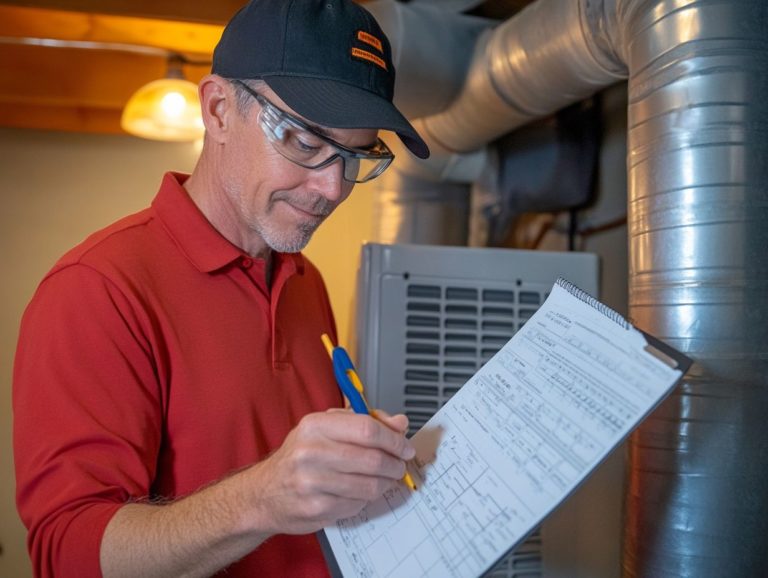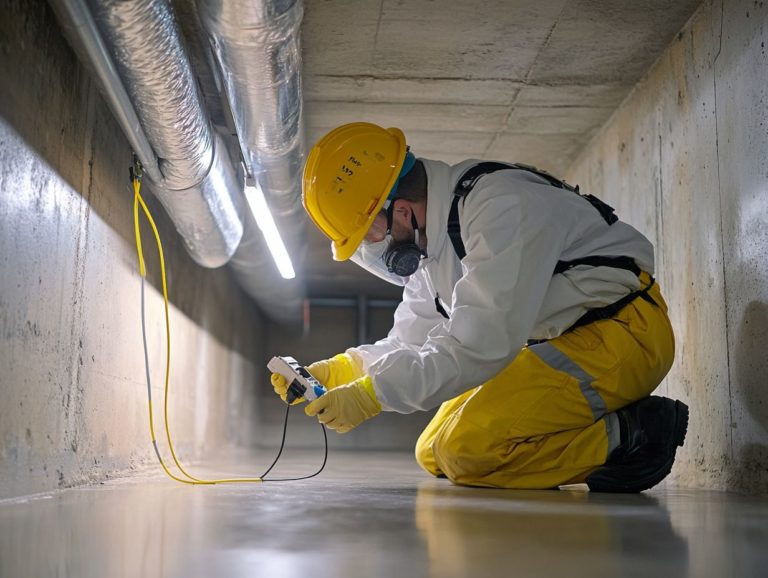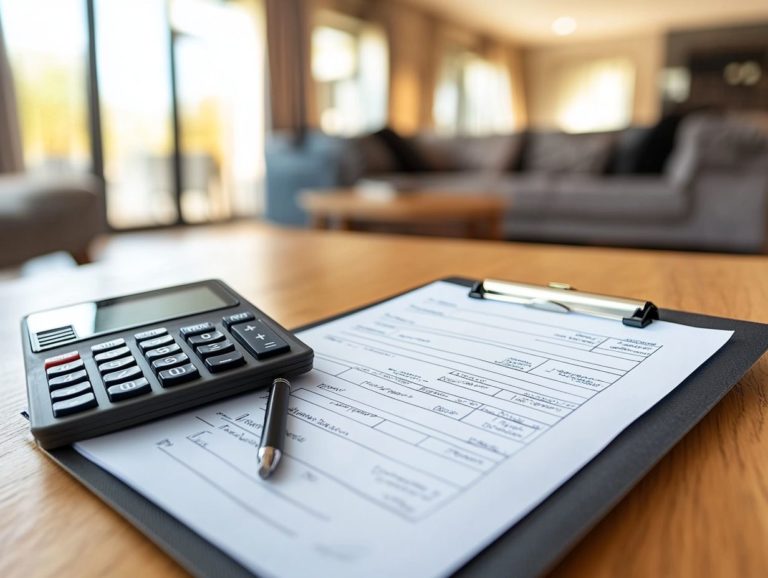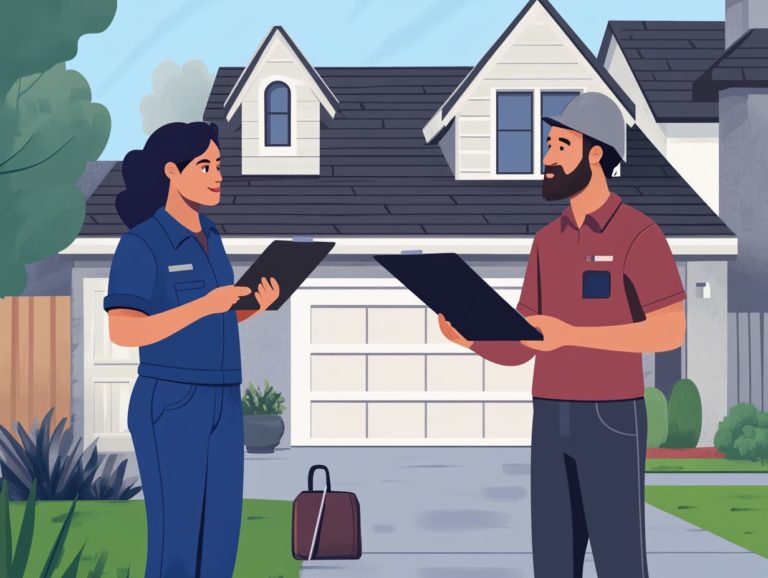Understanding the Basics of Home Inspection Reports
When you’re in the market for a new home, one essential step that can spare you from future complications is a comprehensive home inspection.
Home inspection reports act as a detailed roadmap of a property’s condition, revealing potential issues that could range from structural defects to electrical hazards. This article delves into the importance of these reports, what you can expect from them, common problems they uncover, and how to navigate the inspection process smoothly.
Whether you re a first-time homebuyer or a seasoned investor, understanding these points helps you make informed decisions and safeguard your investment.
Contents
Key Takeaways:

Understanding the basics of home inspections is crucial for any potential home buyer or seller. These reports typically include important information about the condition of a property, such as structural and safety concerns, electrical and plumbing problems, and potential repairs needed.
Proper preparation and careful consideration of a home inspection report can help buyers negotiate repairs and potentially renegotiate the price of a property.
The Importance of Home Inspection Reports
Home inspection reports are essential to the home buying journey, offering you an in-depth understanding of the property’s condition. These reports provide detailed assessments of major issues, safety concerns, and repair estimates, helping you know what to expect in a home inspection report, empowering you to make informed decisions.
For you and your agent, these reports are invaluable; they illuminate necessary repairs and maintenance, ensuring that your investment reflects the home s true value and condition. Moreover, they serve as powerful negotiation tools during the closing process, helping you smoothly handle the details of buying a home.
Why Home Inspections are Necessary
Home inspections are an essential part of your home buying journey, revealing major issues and safety concerns that might escape the untrained eye. Hiring a certified home inspector is crucial for a thorough inspection that protects your investment!
By addressing potential problems early, you can sidestep costly surprises later on, like roofing issues or electrical hazards that could pose serious risks. Skipping this vital step might lead to substantial repairs in the future, turning your dream home into a financial burden you hadn t anticipated.
When you hire a certified professional, you ensure a thorough inspection with a detailed report that outlines immediate concerns and long-term maintenance needs. The peace of mind that comes from knowing your future home has been meticulously inspected is priceless, giving you the confidence that your investment is sound.
What to Expect in a Home Inspection Report
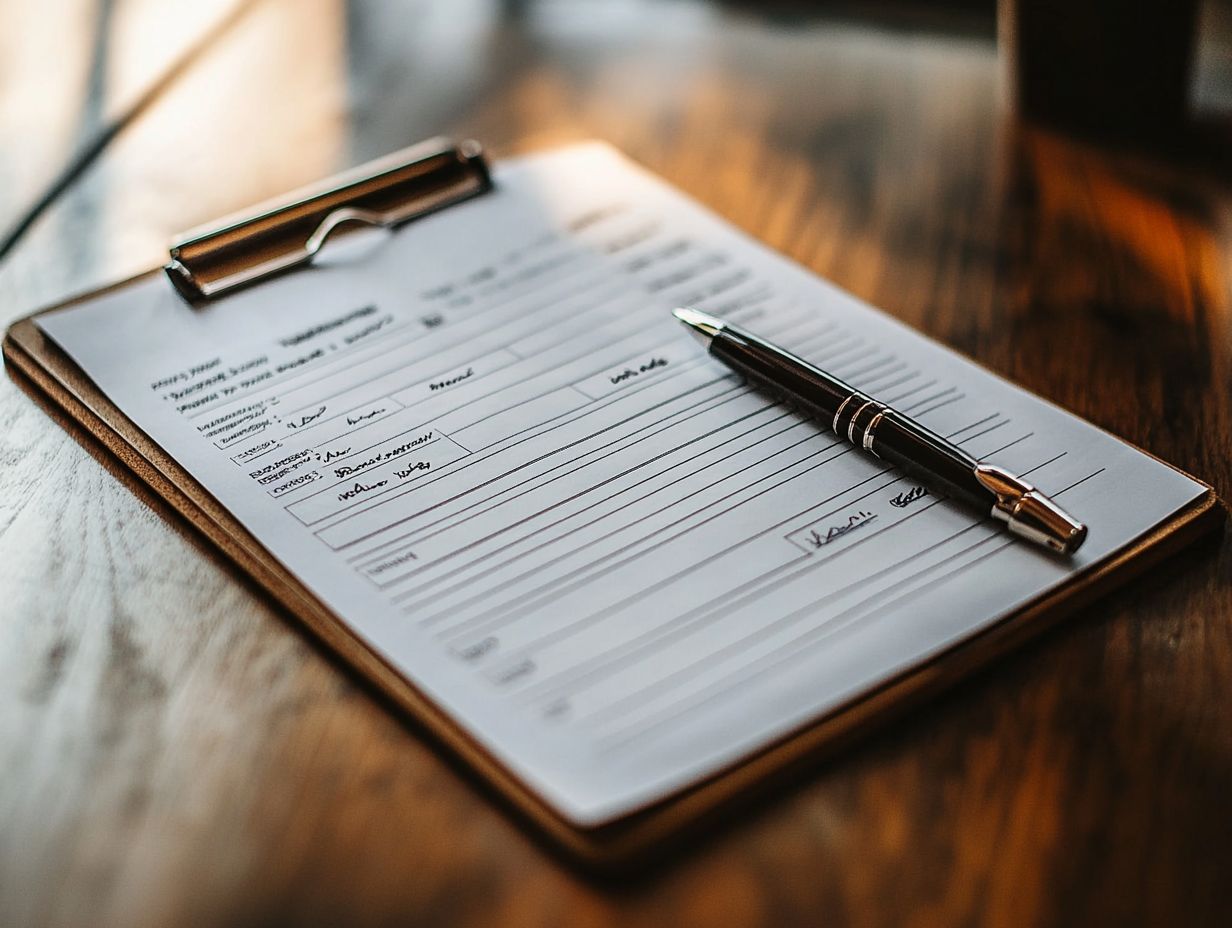
A home inspection report offers you a comprehensive overview of the findings from the inspection. It covers everything, from a thorough visual assessment of both the property’s exterior and interior to a summary section that highlights what to look for in a home inspection report, emphasizing critical issues like electrical and plumbing problems.
It also includes an overall evaluation of the home’s condition, giving you the insights you need to make informed decisions.
Types of Information Included
Home inspection reports contain vital information, including detailed inspection findings and necessary major repairs. For a deeper insight, understanding the home inspection process can help you navigate potential repair credits and often includes photographs that visually document the discovered issues.
These reports are essential tools for you and your agent, providing a comprehensive overview of the property’s condition. By emphasizing significant repairs ranging from structural concerns (issues with the building’s framework) to electrical complications, these reports empower you to make informed decisions, especially when understanding the home inspection process for buyers.
The inclusion of photographs adds a relatable element, offering visual context that proves invaluable during negotiations. This clarity underscores the necessity of addressing these matters, whether through repair requests or price adjustments, ultimately ensuring that you are well-equipped to advocate for your interests.
How to Interpret the Findings
A home inspection is an assessment of the property’s condition by a professional. Understanding the home inspection process is essential for you as a home buyer. It equips you with the knowledge needed to tackle any issues during negotiations.
Understanding these findings enables you to pinpoint critical areas that may need immediate attention. This helps you avoid hidden problems that could lead to costly repairs later on.
With this information at your fingertips, you can negotiate with confidence perhaps asking for repairs to be made before the sale or even requesting a reduction in the purchase price. This knowledge also influences your buying process and gives you the power to make informed decisions.
Ultimately, having a thorough grasp of inspection findings transforms potential pitfalls into powerful negotiation tools.
Common Issues Found in Home Inspection Reports

In home inspection reports, you’ll frequently encounter common issues such as structural concerns, safety hazards, and significant electrical problems. Plumbing issues and foundation troubles are also prevalent, all of which can profoundly impact both the integrity and value of the home.
Structural and Safety Concerns
Structural and safety concerns often rank among the most critical issues that can emerge during a home inspection. They frequently lead to significant repairs necessary to ensure the safety and livability of your home.
These concerns can vary greatly, ranging from serious foundation cracks that may threaten the property’s stability to roof integrity issues, like missing shingles or inadequate ventilation. Both can lead to leaks and resulting water damage.
When these problems come to light, they not only jeopardize the safety of the residents but also have financial implications for potential buyers. The findings from the inspection report can dramatically sway the asking price, prompting requests for repairs or price adjustments.
Electrical and Plumbing Problems
Electrical and plumbing issues frequently emerge in home inspection reports, often resulting in substantial repair costs that demand immediate attention. This is vital to maintain the home’s functionality and safety.
During these inspections, you may find various electrical concerns, such as outdated wiring, overloaded circuits, and faulty outlets. Each of these problems poses serious fire hazards and can jeopardize the integrity of your property’s electrical system.
On the plumbing side, inspections might unveil leaks, corrosion, or outdated fixtures issues that can inflate your water bills and foster mold growth, leading to structural damage if left unaddressed.
Both electrical and plumbing problems contribute to rising repair expenses and can significantly affect the safety and comfort of your living environment. Act quickly to address these issues for a safer home.
How to Prepare for a Home Inspection

Preparing for a home inspection is crucial for you, whether you’re buying or selling a property. This preparation can greatly influence the inspection process, ensuring that every feature of the home and all necessary conditions are clearly presented and easily accessible for the inspector.
Taking the time to organize and ready your space not only facilitates a smoother inspection but also enhances the overall impression of the property.
Tips for a Smooth Inspection Process
To ensure a smooth inspection process, it s essential for you, as both a home buyer and seller, to communicate openly, prepare the property, and meet all inspection conditions for a thorough evaluation.
This proactive approach paves the way for an honest assessment of the home, allowing you and the other party to discuss any concerns or potential issues that may surface.
As a seller, taking the initiative to address minor repairs beforehand creates a positive first impression and reduces the chances of negotiations getting stuck later on.
As a buyer, you should do your own initial checks and clearly outline your expectations for the inspection to set the stage for success.
By prioritizing transparent dialogue, you and the seller can navigate the inspection period with confidence. This ultimately leads to a more favorable outcome for everyone involved.
What to Do After Receiving a Home Inspection Report
Once you receive a home inspection report, it s essential to review the findings meticulously. This will help you strategize your approach for negotiating repairs and understanding any closing costs that may stem from necessary adjustments.
Taking the time to analyze this information can significantly influence your decisions moving forward.
Negotiating Repairs and Renegotiating Price
Negotiating repairs and potentially revisiting the price after reviewing the home inspection report is crucial for you as a home buyer. The repair estimates can significantly impact the final sale terms and your overall investment in the property.
Effective communication about the repair needs is essential to ensure that everyone involved is on the same page and satisfied. Approach the conversation with the seller collaboratively, using the inspection report findings as your foundation.
By highlighting specific issues that warrant attention, you ll frame the discussion in a way that encourages the seller to recognize the necessity of the repairs rather than feeling defensive.
Consider obtaining repair estimates in advance; this information can serve as a powerful tool in justifying any adjustments to the purchase price.
Ultimately, this approach helps align both you and the seller toward a mutually beneficial agreement, paving the way for a smoother transaction.
Frequently Asked Questions
Here are some common questions related to home inspection reports:
What is a home inspection report?
A home inspection report is a detailed document that outlines the overall condition of a residential property. It is usually conducted by a professional home inspector and provides a comprehensive analysis of the home’s structure, systems, and components, highlighting the importance of home inspections.
Why is it important to understand the basics of home inspection reports?
Understanding the basics of home inspection reports is important as it allows you to have a better understanding of the condition of the property you are interested in buying. This information helps you make informed decisions about your potential investment and identify any potential issues that may need to be addressed.
What does a standard home inspection report include?
A standard home inspection report typically includes information on the home’s exterior, interior, roof, plumbing, electrical, heating and cooling systems, and any other visible structures. For more insights, understanding the necessity of home inspections can be crucial. It may also include photos and detailed descriptions of any issues found during the inspection.
How long does a home inspection report usually take?
The length of a home inspection report can vary depending on the size and condition of the property. On average, a standard home inspection can take anywhere from 2-4 hours to complete.
Can home inspection reports uncover hidden issues?
While home inspections are thorough, they cannot uncover every potential issue within a property. Some issues may be hidden and may only be discovered with further specialized inspections, such as mold or termite inspections.
Who pays for the home inspection report?
Typically, the buyer is responsible for paying for the home inspection report as it is part of the due diligence process when purchasing a home. However, in some cases, the seller may cover the cost of the inspection as part of negotiations in the home buying process.

